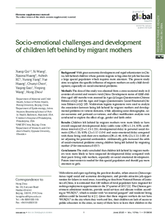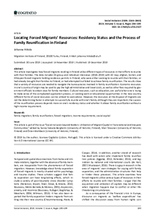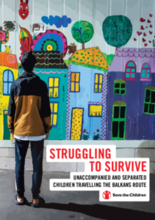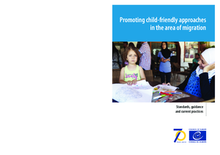Displaying 281 - 290 of 839
The present study aims to explore the specific influence of migrant mothers on early child development, especially on social-emotional problems.
This study aimed at investigating the incidence of placement breakdown in Flemish family foster care (Dutch speaking part of Belgium) for unaccompanied children (UC), and to explore the association of breakdown with foster child, foster family and case characteristics.
This episode of the Mobituaries podcast describes the "Orphan Train" movement of the late nineteenth and early twentieth centuries - an initiative that sent 250,000 orphaned children from the crowded cities of the East Coast of the United States and sent to the rural Western United States from 1854 to 1929.
The research question examined in this study is whether unaccompanied minors (UAMs) in compulsory care receive more restrictive actions by compulsory care staff compared to their counterparts who are non-UAMs.
This article investigates how forced migrants residing in Finland utilise different types of resources in their efforts to reunite with their families.
The purpose of this study was to investigate the direct effect of perceived social support and the mediation role of resilience on left-behind children’s mental well-being.
This study employed a retrospective lens to explore adult experiences of their family post-deportation. Findings show that family went through a reorganization process after parental deportation which impacted how the child understood the deportation and affected the child’s perceptions and experiences of their parental loss.
This article describes the results of a narrative literature review on empirical research examining the outcomes and/or experiences of unaccompanied refugee minors in family foster care.
The study ”Struggling to Survive” identifies and deepens the understanding of informal practices used, and experiences of, unaccompanied and separated migrant children during the course of their migration journey.
This compilation contributes to the implementation of the objectives of the Action Plan on protecting refugee and migrant children in Europe, adopted by the Committee of Ministers of the Council of Europe, by bringing together international and European standards on child-friendly practices in the context of migration with illustrations from practice of the kind of initiatives, programmes and procedures that serve to implement these standards.




